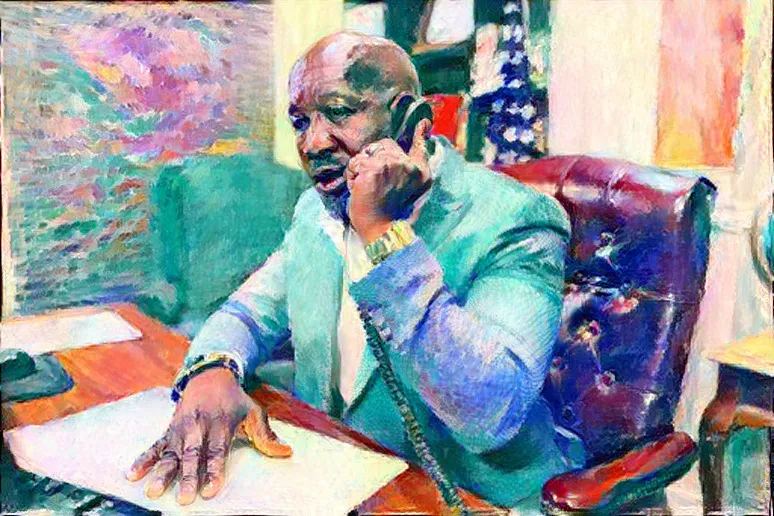Call: (800) 382-3176 or Chat with us
Who Advocates for People with Brain Injuries: Finding the Right Support
Navigating the world of brain injury support and advocacy can be overwhelming for survivors and their families. However, it doesn’t have to be. By understanding the various organizations, programs, and resources available, you can ensure the best possible care and support for your loved one. In this blog post, we’ll explore the different levels of support available, from national organizations to local and state advocacy groups, as well as the crucial role of family and healthcare professionals who advocates for people with brain injuries. Together, we can empower those affected by brain injuries and help them lead fulfilling lives.
Blog Summary
- National organizations, local advocacy groups and healthcare professionals provide essential support for brain injury survivors.
- Family members and caregivers are vital in advocating for individuals with brain injuries and connecting them to resources.
- Education initiatives, online communities, research & development into treatments all contribute to improving the lives of those affected by TBIs.
National Organizations Supporting Brain Injury Survivors
National organizations play a pivotal role in providing vital support, research, and resources for brain injury survivors. These organizations strive to improve the quality of life for individuals affected by brain injuries and their families by offering a range of services, such as support groups, educational initiatives, and advocacy efforts.
Some of the most prominent national organizations include:
- The Brain Injury Association of America (BIAA) – Here
- The National Institute of Neurological Disorders and Stroke – Here
- The Centers for Disease Control – Traumatic Brain Injury – Here
These organizations tirelessly work on prevention, treatment, and management, ensuring brain injury survivors and their families access to essential support and resources.
Brain Injury Association of America (BIAA)
The Brain Injury Association of America (BIAA) is a leading national organization that provides services and representation to individuals, families, and professionals affected by traumatic brain injury (TBI). Their mission is to increase access to quality health care and individualized services while raising awareness and understanding of brain injury through advocacy, education, and research.
Sharing their personal story of brain injury survival is a powerful way they inspire others and foster hope among those affected. Their dedication to providing support and resources to those in need makes them an invaluable asset in the brain injury community.
National Institute of Neurological Disorders and Stroke
NINDS is a part of the U.S. It is the National Institute of Neurological Disorders and Stroke. National Institutes of Health dedicated to researching and funding initiatives related to brain and nervous system disorders. Their goal is to improve the lives of people affected by these conditions by decreasing the impact of neurological diseases.
As the foremost supporter of research into the brain and nervous system, NINDS strives to execute, nurture, organize, and direct research into the causes, prevention, diagnosis, and treatment of neurological disorders. Additionally, they offer fellowships to augment scientific knowledge in neurological areas, making them a valuable resource for furthering our understanding of brain injuries and their effects.
Centers for Disease Control – Traumatic Brain Injury
The Centers for Disease Control (CDC) plays a vital role in advocating for individuals with brain injuries by providing relevant information, research, and programs to prevent and manage traumatic brain injuries (TBIs). They endeavor to prevent TBIs and assist individuals in recognizing, responding to, and recovering from TBIs in the event of their occurrence.
The CDC also provides resources for educating and raising awareness about TBIs, carrying out studies, and offering guidelines for the diagnosis and management of brain injuries. With their commitment to improving the lives of those affected by brain injuries, the CDC serves as a crucial ally in the fight against TBIs.
Local and State Advocacy Groups
In addition to national organizations, local and state advocacy groups also play a significant role in supporting brain injury survivors. These groups offer tailored support and services to meet the unique needs of individuals with brain injuries and their families. They include state brain injury associations, community-based support groups, and rehabilitation centers.
Local and state advocacy groups offer services such as rehabilitative services, including:
- Life skills training
- Recreation
- Health management
- Vocational support
- Community reintegration
This ensures brain injury adult survivors have access to resources that help them thrive in their communities.
State Brain Injury Associations
State brain injury associations are essential in advocating on behalf of individuals with brain injuries. They offer:
- Direct assistance
- Advocacy
- Education to those living with brain injuries and their families
- Strive to raise awareness, encourage research and treatment, and represent those affected by brain injuries.
State brain injury associations tirelessly provide resources, support groups, and information, all targeted at enhancing the quality of life for those impacted by brain injuries. To locate a state brain injury association, you can search online or contact your local government office.
Community-Based Support Groups
Community-based support groups offer a secure and encouraging atmosphere for individuals affected by brain injury to communicate their experiences, acquire knowledge from one another, and access resources and assistance.
The Brain Injury Network of Dallas (BIND) is an example of a non-profit organization dedicated to helping those living with brain trauma. It is part of the International Brain Injury Clubhouse Alliance (BICA). BIND’s mission is to offer brain injury survivors the chance to gain long-term, functional improvements in all areas of recovery, enabling them to lead the most independent and productive life possible.
Participation in community-based support groups allows brain injury survivors to find valuable connections and support, aiding their journey toward healing.
Rehabilitation Centers and Services
Rehabilitation centers and services for individuals with brain injuries play a crucial role in enhancing their physical, cognitive, and emotional functioning, as well as their quality of life. These services may include:
- Physical therapy
- Occupational therapy
- Speech therapy
- Cognitive therapy
- Psychotherapy
With their comprehensive rehabilitation services, these centers aid individuals with brain injuries in returning to an independent and healthy lifestyle. To locate a rehabilitation center or service, individuals can research online, inquire with their physician or healthcare provider for a recommendation, or connect with a local or state brain injury association.
Legal Advocacy and Civil Rights Protection
Legal advocacy and civil rights protection organizations play a vital role in ensuring equal opportunities and accommodations for people with brain injuries. These organizations provide:
- Legal representation and support
- Enforcing and defending the rights and liberties of individuals
- Addressing issues of discrimination, equality, and social justice.
Some key organizations in this area include the Americans with Disabilities Act (ADA) Compliance, the Job Accommodation Network (JAN), and the National Association of State Head Injury Administrators (NASHIA). Through their efforts, these organizations help to create a more inclusive and equitable society for people with brain injuries.
Americans with Disabilities Act (ADA) Compliance
The Americans with Disabilities Act (ADA) is a federal civil rights law that seeks to guarantee that individuals with disabilities have the same rights and opportunities as everyone else. It prohibits discrimination against individuals with disabilities in areas such as employment, public services, and accommodations, with the goal of promoting equal access, participation, and inclusion for people with disabilities. Alongside the Affordable Care Act, the ADA plays a crucial role in ensuring equal rights for all Americans.
The ADA National Network provides information, guidance, and training on the ADA to promote awareness and understanding. Ensuring compliance with the ADA allows individuals with brain injuries to access the opportunities and benefits they rightfully deserve.
Job Accommodation Network (JAN)
The Job Accommodation Network (JAN) is a free consulting service that offers information and advice to employers and individuals with disabilities regarding job accommodations and the Americans with Disabilities Act (ADA). JAN assists employers in understanding their legal responsibilities and provides guidance on how to provide reasonable accommodations for people with disabilities.
Offering comprehensive technical assistance, consulting, and mentoring services, JAN serves as a resource for both employers and individuals with disabilities, promoting success in the workplace for everyone.
National Association of State Head Injury Administrators (NASHIA)
The National Association of State Head Injury Administrators (NASHIA) is a non-profit organization dedicated to enhancing the quality of life for individuals with brain injuries and their families. By providing resources and support to state agencies and local organizations that offer services to people with brain injuries, NASHIA strives to ensure that those affected have access to the necessary services and supports.
Through their work, NASHIA helps to create a network of care and support for individuals with brain injuries, ensuring that they have the resources they need to live fulfilling lives.
Family and Caregiver Support
Family and caregiver support plays a crucial role in advocating for brain injury survivors. Family members and caregivers provide emotional and practical support, access to resources, and advocacy efforts, all aimed at improving the quality of life for their loved ones with brain injuries.
Resources available to family members and caregivers include support groups, communication tools for elected officials, and educational and awareness initiatives. By understanding the importance of their role in advocacy and making use of available resources, family members and caregivers can make a significant difference in the lives of those affected by brain injuries.
The Role of Family Members in Advocacy
Family members possess a significant role in advocating for individuals with brain injuries. They are able to provide emotional assistance, assist in research efforts, and serve as a bridge between the person with the brain injury and medical personnel. The support and advocacy provided by family members can be instrumental in ensuring that the person with the brain injury receives the highest quality of care and treatment.
Additionally, family members can help to raise awareness of brain injuries in the local community, making them invaluable allies in the fight for better treatment and understanding.
Caregiver Support Groups and Resources
Caregiver support groups and resources offer support, information, and resources to those caring for individuals with brain injuries. Participating in a caregiver support group or utilizing resources allows caregivers to find emotional support, access resources and information, and build a sense of community with those in similar situations.
Some resources available to caregivers include state brain injury associations, community-based support groups, rehabilitation centers and services, and online support groups and resources.
By making use of these resources, caregivers can better support their loved ones with brain injuries and ensure they have access to the care and assistance they need.
Communicating with Elected Officials
Communicating with elected officials is essential in order to offer guidance, demonstrate local knowledge, and shape their decisions. Effective methods of communication with elected officials include correspondence such as letters, emails, and faxes.
Exhibiting politeness, preparedness, and specificity when communicating with elected officials can be instrumental in gaining their attention. Establishing and sustaining relationships with elected officials is essential in order to ensure effective communication and collaboration.
Engaging with elected officials allows family members and caregivers to advocate for the needs of their loved ones with brain injuries, contributing to positive change in their communities.
Educational and Awareness Initiatives
Educational and awareness initiatives play a vital role in informing the public and promoting understanding of brain injuries. Educating the public about the signs, symptoms, and consequences of brain injuries helps these initiatives create a more informed and compassionate society.
Some examples of educational and awareness initiatives include:
- Concussion education and prevention
- Raising awareness through events and programs
- Providing online resources and communities for individuals with brain injuries and their families
By participating in and supporting these initiatives, individuals can help to ensure that brain injury survivors receive the understanding and support they need.
Concussion Education and Prevention
Concussion education and prevention is a vital aspect of raising awareness about brain injuries. The purpose of these initiatives is to:
- Increase awareness about concussions
- Encourage positive behaviors in relation to concussion management
- Create policies and practices for preventing, identifying, and managing concussions
This includes instructing coaches, parents, and students to identify the signs and symptoms of concussions and take the necessary steps if one occurs. Furthermore, concussion education seeks to assist students in their recovery process and guarantee a safe return to play and learning.
Educating the public about concussion dangers helps these initiatives enhance the overall safety and well-being of individuals affected by brain injuries.
Raising Awareness through Events and Programs
Raising awareness through events and programs is essential in order to effectively inform and educate people regarding brain injuries. These initiatives strive to alter attitudes, prompt action, and allocate resources within the community.
Implementing events and programs can help to foster enthusiasm and support, build stronger connections between the brand and the audience, and provide an opportunity for direct engagement and feedback. Organizing events and programs allows individuals and organizations to increase awareness, foster understanding, catalyze change, and cultivate a sense of community around a shared cause.
Online Resources and Communities
Online resources and communities offer valuable support and information to individuals with brain injuries and their families. These resources include online support groups, forums and blogs, and various websites that provide information about brain injuries and resources for those affected.
Participation in online communities allows individuals with brain injuries to:
- Connect with others sharing similar experiences
- Exchange advice
- Offer support
- Access a wealth of information and resources related to their condition
In today’s digital age, online resources and communities play a crucial role in ensuring that individuals with brain injuries have the support and understanding they need.
The Role of Healthcare Professionals
Healthcare professionals play a vital role in supporting and advocating for people with brain injuries. Through specialized rehabilitation services, research and development in brain injury treatment, and collaboration with advocacy organizations, healthcare professionals ensure that brain injury survivors have access to the care, support, and resources they need to thrive.
Through understanding the unique needs of individuals with brain injuries and close collaboration with advocacy organizations, healthcare professionals can significantly impact the lives of those affected by brain injuries and their families.
Specialized Rehabilitation Services
Specialized rehabilitation services, such as those offered by Advocates Brain Injury Services, include:
- Promoting, supporting, and implementing rehabilitation activities at the community level
- Facilitating referrals to access more specialized care
- Providing comprehensive rehabilitation services to help individuals return to an independent and healthy lifestyle.
Some of the specialized rehabilitation providers whose services are essential in promoting good health, preventing disease, and facilitating the treatment and recovery process for individuals with brain injuries include:
- Physiatrists
- Physiotherapists
- Occupational therapists
- Speech and language therapists
Offering personalized, high-quality care, specialized rehabilitation services significantly contribute to improving the lives of those affected by brain injuries.
Research and Development in Brain Injury Treatment
Research and development in brain injury treatment is essential for improving outcomes and quality of life for patients. It contributes to:
- Advancing our understanding of the mechanisms and impacts of brain injuries
- Constructing novel diagnostic tools and treatment approaches
- Advancing rehabilitation interventions
- Creating evidence-based practice guidelines
- Informing the creation of groundbreaking therapies and interventions for brain injury treatment.
Supporting and participating in research and development initiatives allows healthcare professionals and organizations to ensure that individuals with brain injuries have access to the most effective and innovative treatments available.
Collaborating with Advocacy Organizations
Collaborating with advocacy organizations provides an avenue for individuals with brain injuries to gain access to specialized resources and support. Partnering with organizations like the Brain Injury Association of America (BIAA) enables healthcare professionals to ensure they provide the highest quality care and support to their patients.
Furthermore, collaboration with advocacy organizations allows healthcare professionals to stay informed about the latest research, resources, and policy developments related to brain injury treatment, ensuring that they are able to provide the most up-to-date and effective care for their patients.
Through collaboration and partnership, healthcare professionals and advocacy organizations can work together to create a supportive network of care for individuals with brain injuries.
Summary
In conclusion, navigating the world of brain injury support and advocacy can be a daunting task, but understanding the various organizations, programs, and resources available can make all the difference. From national organizations to local and state advocacy groups, legal advocacy and civil rights protection, family and caregiver support, educational and awareness initiatives, and the crucial role of healthcare professionals, the landscape of support for brain injury survivors is vast and varied. By arming ourselves with knowledge and working together, we can ensure that individuals affected by brain injuries receive the understanding, support, and resources they need to live fulfilling lives.
Frequently Asked Questions
What organizations help with brain injuries?
Organizations such as the Brain Injury Association of America, National Association of State Head Injury Administrators, United States Brain Injury Alliance, and Military Health System’s Traumatic Brain Injury Center of Excellence provide resources for brain injury education, caregiver support, news, stories, and awareness.
What is advocacy after brain injury?
Brain injury advocacy is a meaningful way to help those affected by brain injuries identify and address the obstacles they face in order to improve their quality of life.
What does the brain injury association do?
The Brain Injury Association of America (BIAA) strives to advance awareness, research, treatment, and education for those affected by brain injury, providing help, hope, and healing through its toll-free National Brain Injury Information Center.
Who assesses brain injuries?
Neurologists, neurosurgeons and neuropsychologists are the professionals that assess brain injuries. They use memory, thinking, motor function and sensory tests as well as CT scans and MRIs to determine any damage or issues related to the brain injury. These tests are used to diagnose the extent of the injury and to determine the best course of treatment. Depending on the severity of the injury, treatment may include physical therapy, occupational therapy,
What is the role of national organizations in supporting brain injury survivors?
National organizations provide essential support for brain injury survivors, offering support groups, educational initiatives, research, and advocacy efforts.














